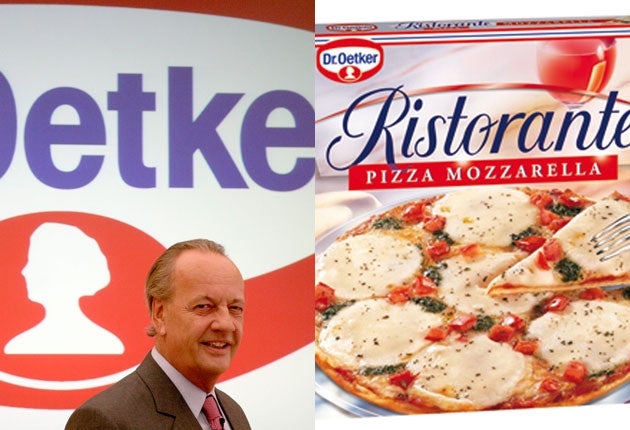Made in Lancashire, the German pizza that's devouring Italy

Your support helps us to tell the story
From reproductive rights to climate change to Big Tech, The Independent is on the ground when the story is developing. Whether it's investigating the financials of Elon Musk's pro-Trump PAC or producing our latest documentary, 'The A Word', which shines a light on the American women fighting for reproductive rights, we know how important it is to parse out the facts from the messaging.
At such a critical moment in US history, we need reporters on the ground. Your donation allows us to keep sending journalists to speak to both sides of the story.
The Independent is trusted by Americans across the entire political spectrum. And unlike many other quality news outlets, we choose not to lock Americans out of our reporting and analysis with paywalls. We believe quality journalism should be available to everyone, paid for by those who can afford it.
Your support makes all the difference.Italians who like to boast that no one makes pizza quite like their mamma are facing up to the indigestible news that in Italy the most popular shop-bought example of the classic Neapolitan snack is likely to have started life in Lancashire.
For while the denizens of Leyland near Preston might be unlikely to be heard muttering chi mangia bene, vive bene (those who eat well live well) as they relax over their morning cappuccino and biscotti, it seems they do know a thing or two when it comes to frozen pizzas.
Yesterday it emerged that the Ristorante brand produced by the German food conglomerate Dr Oetker at its plant on an industrial estate just off the M6 is the best-selling frozen pizza in a country synonymous with passion and pride in food.
According to sales data releasedby IRI, the company now commands 20 per cent of the Italian pizza market.It beat into second place Buitoni Bella Napoli – founded nearly 200 years ago by Giuseppe Buitoni, but which was bought by the Swiss conglomerate Nestlé in 1988.
Leyland's notoriety has until now rested predominantly on its production of buses and trucks before lending its name to the ill-fated 1970s nationalisation of the British car industry.
Although Italy may be the home of the Slow Food movement, the country has along with other European countries experienced a steady decline in home cooking. The current market for convenience food is worth €6.6bn (£5.8bn) – similar to that in the UK, according to Euromonitor. Sales of packaged food are rising in line with the rest of Europe at the rate of around 15 per cent a year.
Still, foodie sections of society reacted in horror last year when McDonald's teamed up with Silvio Berlusconi's government to create a special product to suit the local tastebuds. "McDonald's speaks Italian," the advertising slogan declared, targeting a nation with around 300 branches.
The US food giant's McItaly burger contained home-grown beef, artichoke spread, Asiago cheese and smoked pancetta, but it was, perhaps predictably, panned by the critics, prompting the Agriculture Minister, who endorsed the snack, to call them "ignorant Stalinists".
Lancashire meanwhile has been stepping up its claim to a seat at the world's top table. The Michelin star winners Paul Heathcote and Nigel Haworth are among two of the county's most famous chefs who have championed the region's fine produce and hearty cooking traditions.
The men behind the brands
* Dr Oetker
August Oetker is credited as the inventor of baking powder. His company, founded in 1891, is still based in Bielefeld, Germany, and now includes banking and publishing arms. Oetker passed the business on to his son-in law.
* Colonel Sanders
His military title may have been ceremonial but his string tie, white suite and goatee were real. A 40-year-old Harland Sanders began a Kentucky roadside chicken shack, deploying his "secret recipe" – a pressurised cooking method for frying breaded poultry wings. He sold the company for $2m (£1.3m) in 1964.
* Dr Pepper
First patented in 1885, the founder of the global fizzy-drink brand was no medic – it was a pharmacist, Charles Alderton, who sold his first soda at a drugstore in Waco, Texas.
* Mr Kipling
Sadly, the creator of French Fancies is only an exceedingly good marketing gimmick first introduced to the British cake-buying public in 1967.
* Uncle Ben
Ben was, according to the Uncle Ben's website, a real Texan farmer famed for his high-quality rice. But the details of his life have been "lost to history".
Join our commenting forum
Join thought-provoking conversations, follow other Independent readers and see their replies
Comments